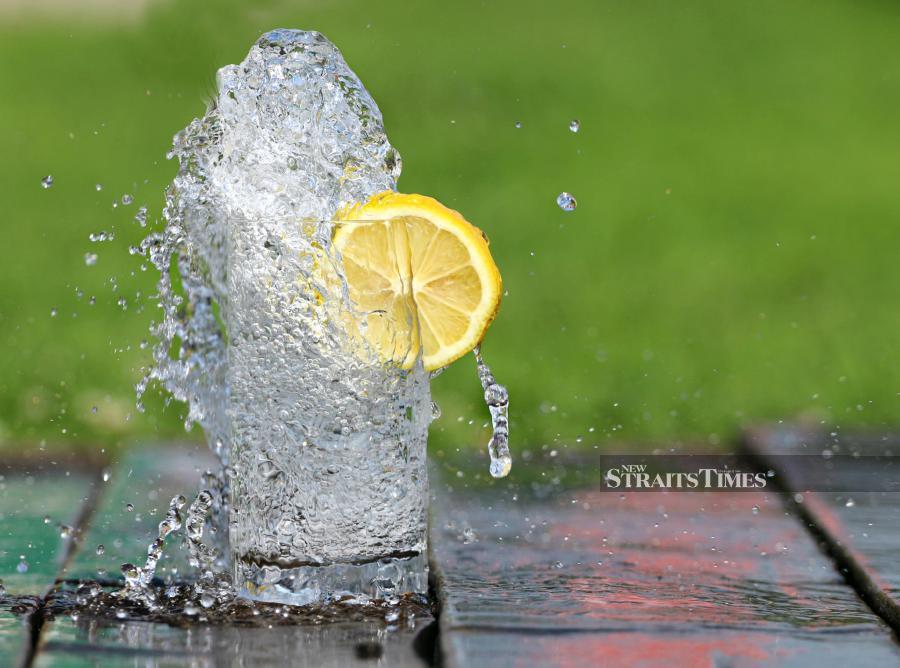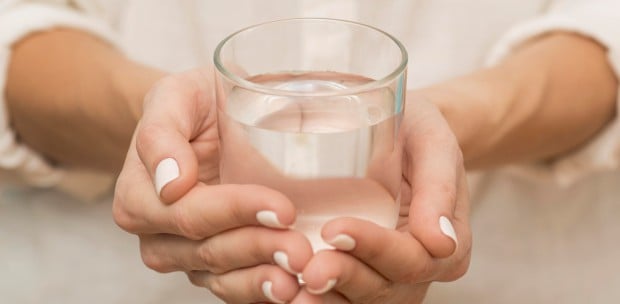FOR the longest time, I've heard people say things like: "Oh, my newborn slept through the night. He or she is such a good baby!" I used to nod and agree. I didn't know any better until I had children of my own.
Believe me, it's really wonderful if you can get a full night's sleep after childbirth. The common story is usually how new parents hardly get much sleep with their newborns, at least for the first few months.
Logically, an unbroken sleep feels like the best thing ever. Many parents of newborns are grateful if they can get a full four to six hours of sleep, waking up only for the next feed and nappy change. This was how I used to think too. Sleep is so important to me especially when I'm just so tired and have fitful sleep during the night.
However, when you have a newborn in your care, you need to be a bit more vigilant about how often they feed and need nappy change. Dehydration is a serious thing in infants and the ailing elderly.
STAY HYDRATED
Over the years, and after having four babies in my care and later, elderly loved ones like my late parents and relatives too, I've learnt that hydration in these two categories of people we love is crucial for their wellbeing.
Over-sleepy babies who have fever or bouts of diarrhoea need to be woken up and persuaded to have their milk, either by breastfeeding them or via the bottle. Don't let them go beyond four hours of not having anything. Don't stop feeding the baby just so you can stop the diarrhoea or vomiting. Your baby needs the nutrients and extra fluids to replace what he or she is losing.
Unless your doctor recommends it, don't give your infant water between feeding to prevent dehydration. Water makes the baby full and doesn't provide any nutrients. They need to stay hydrated because if there's not enough fluids, the body won't be able to carry out its normal functions of regulating fluid balance of electrolytes, minerals and salt.
When I had brought my second baby home from the hospital, I thought this baby was much easier to care for than the first, who had intractable seizures round the clock. I barely slept that time.
This one was a textbook case — suckled on time and did everything by the book. Then for two nights in a row he slept through the night, which was about eight hours. I was so grateful for the full night's sleep. Then I noticed that he didn't want to suckle and only wanted to sleep all the time. I had to gently wake him up for his feeds.
By the end of the second day, he looked yellower than usual. I quickly took him to the doctor and was told that this baby had jaundice. He needed to be fed regularly to flush out the high levels of bilirubin in the system.
Even though newborn jaundice isn't harmful most of the time, I wasn't going to take any chances. A very high level of bilirubin in a newborn can damage the brain. One brain-injured child in the family was quite enough for me. Fortunately, nothing untoward happened. Within days, everything returned to normal.
DANGEROUS SITUATION
Dehydration can be caused by several things, like diarrhoea, vomiting, food poisoning, fever, exposure to high heat and oral problems that make drinking and eating painful. In the elderly, dehydration can happen with no one the wiser because their thirst perception is low, so they drink less.
Watch out for their fluid intake if they have diabetes or kidney disease, mobility problems or are taking medications that increases urination, which can cause additional fluid loss. Some of the things to look out for that are the common signs of dehydration include dry mouth and cracked lips, fatigue, wanting to sleep all the time, decrease in urination, dark-coloured urine, constipation, lightheadedness and confusion.
In babies, you'd notice there are no tears when they cry. In the elderly, they may have muscle cramping. Severe dehydration can be very dangerous and even life-threatening. If you see this happening, don't hesitate to bring your loved one to the hospital.
They may need to be hospitalised for a few days, but that's the best way to ensure that everything is back to normal before going home. When the loved one in your care is experiencing dehydration due to either a stomach bug or other causes, hygiene is of utmost importance.
Remind family members and friends who are visiting to wash their hands. If possible, don't visit. But if they insist, do establish some house rules, including no physical contact.
[The views expressed here are entirely the writer's own.]
Putri Juneita Johari volunteers for the Special Community Society of Ampang. She can be reached at [email protected].





